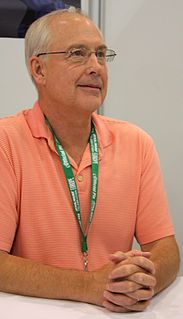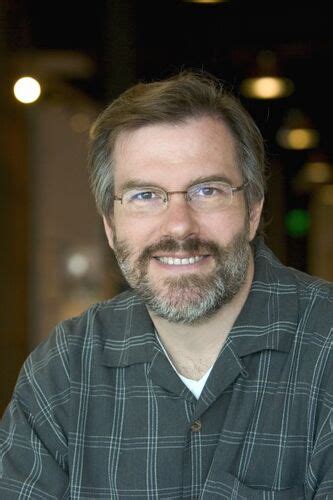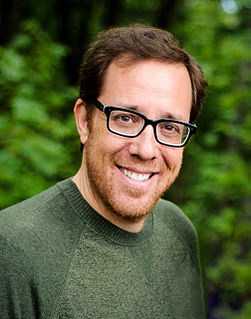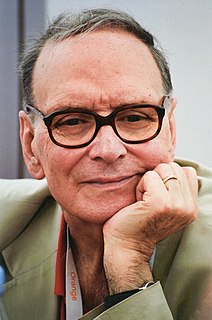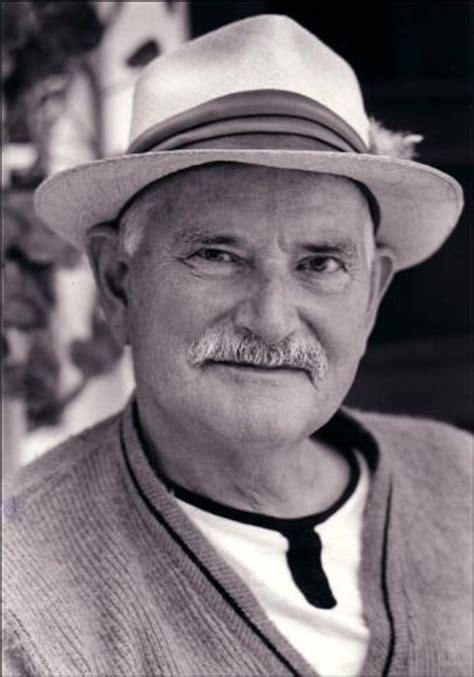A Quote by Ben Burtt
I've always found that when you're trying to create illusions with sound, especially in a science fiction or fantasy movie, that pulling sounds from the world around us is a great way to cement that illusion because you can go out and record an elevator in George Lucas's house or something, and it will have that motor sound.
Related Quotes
There's no excuse for having a mental or creative block in sound. You can just go out and collect things in the real world - they make the sound, not you. It's very restricting to always use a library for sound effects. It's much more interesting and freeing to go out and record new sounds because you never know what you're going to get.
When we make films - even 2D films - you're always trying to create this illusion of 3D, anyway. You're trying to create a believable world with characters walking, in and out of the perspective, to create the illusion that there's a world. The desire and drive to create this illusion of three-dimensional space is something that is true about every kind of film because you want the audience to really be experiencing it, first hand. It's a natural extension of the storytelling and the process of filmmaking.
When I do a record, it sounds more punk and raw. Or it will sound louder, or it will sound more shocking. Or mind-boggling. I'll be trying to figure it out, but once I've got it figured out I'll be like, I know this; I know where this came from. I think art is most interesting when the intention is not clear.
We're all about exploring new sounds, so we don't have any limits whatsoever about how we go about finding them. We do tend to sample human vocals or sample sounds, which allows you to create your own sound. That's not our only way obviously, but that's a way you can use a sound no one's used before; it's not a sound in the synth. There's a lot of that going on in our songs in general.
Science fiction is fantasy about issues of science. Science fiction is a subset of fantasy. Fantasy predated it by several millennia. The '30s to the '50s were the golden age of science fiction - this was because, to a large degree, it was at this point that technology and science had exposed its potential without revealing the limitations.
Being a fan of science fiction, I collect a lot of science fiction art work and so if you go to my house there's like a library and you just geek out on science fiction material. A lot of the colony worlds specifically are built as a melting pot of different societies, because the world is at a point where there are only two zones that are left inhabitable.
I define science fiction as the art of the possible. Fantasy is the art of the impossible. Science fiction, again, is the history of ideas, and they're always ideas that work themselves out and become real and happen in the world. And fantasy comes along and says, 'We're going to break all the laws of physics.' ... Most people don't realize it, but the series of films which have made more money than any other series of films in the history of the universe is the James Bond series. They're all science fiction, too - romantic, adventurous, frivolous, fantastic science fiction!
We needed to make a sound that's not gonna fit in with everything else - we wanted to make something that was completely unique and individual to us. We spent a lot of time trying to make a sound that was a One Direction sound. At first it was quite hard to do that, but I'm really happy with the sound.
'Troublemaker' is not an adaptation of 'Metro Girl' or 'Motor Mouth.' It is an original story. The hardest part was probably trying to keep the sound true to the novels. I always write in first person, and it was important to us that the readers of 'Metro' and 'Motor' be comfortable with the change over to a graphic novel.
I'm very interested in vertical space.I want the players to listen to their sound in such a way that they hear the complete sound they make before they make another one. So that means that they hear the tail of the sound. Because of the reverberation, there's always more to the sound than just the sound.
Science fiction is a weird category, because it's the only area of fiction I can think of where the story is not of primary importance. Science fiction tends to be more about the science, or the invention of the fantasy world, or the political allegory. When I left science fiction, I said "They're more interested in planets, and I'm interested in people."
